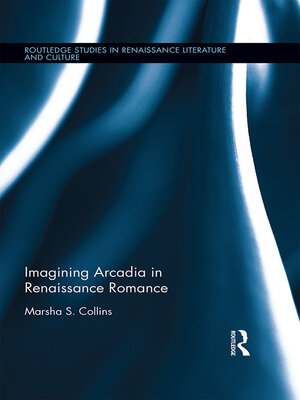Imagining Arcadia in Renaissance Romance
ebook ∣ Routledge Studies in Renaissance Literature and Culture
By Marsha S. Collins

Sign up to save your library
With an OverDrive account, you can save your favorite libraries for at-a-glance information about availability. Find out more about OverDrive accounts.
Find this title in Libby, the library reading app by OverDrive.



Search for a digital library with this title
Title found at these libraries:
| Library Name | Distance |
|---|---|
| Loading... |
From Theocritus' Idylls to James Cameron's Avatar, Arcadia remains an enduring presence in world culture and a persistent source of creative inspiration. Why does Arcadia still exercise such a powerful pull on the imagination? This book responds by arguing that in sixteenth-century Europe, a dramatic shift took place in imagining Arcadia. The traditional visions of Arcadia collided and fused with romance, the new experimental form of prose fiction, producing a hybrid, dynamic world of change and transformation. Emphasizing matters of fictional function and world-making over generic classification, Imagining Arcadia in Renaissance Romance analyzes the role of romance as a catalyst in remaking Arcadia in five, canonical sixteenth-century texts: Sannazaro's Arcadia; Montemayor's La Diana; Cervantes' La Galatea; Sidney's Arcadia; and Lope de Vega's Arcadia. Collins' analyses of the re-imagined Arcadia in these works elucidate the interplay between timely incursions into the fictional world and the timelessness of art, highlighting issues of freedom, identity formation, subjectivity and self-fashioning, the intersection of public and private activity, and the fascination with mortality.
This book addresses the under-representation of Spanish literature in Early Modern literary histories, especially regarding the rich Spanish contribution to the pastoral and to idealizing fiction in the West. Companion chapters on Cervantes and Sidney add to the growing field of Anglo-Spanish comparative literary studies, while the book's comparative and transnational approach extends discussion of the pastoral beyond the boundaries of national literary traditions. This book's innovative approach to these fictional worlds sheds new light on Arcadia's enduring presence in the collective imagination today.







